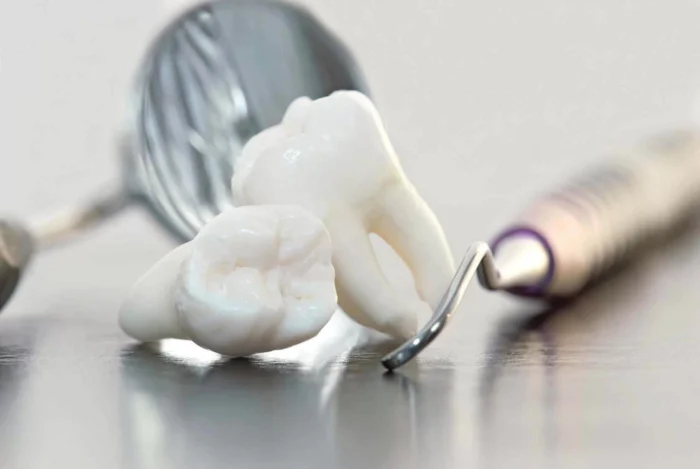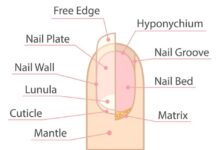
Wisdom teeth, often considered a rite of passage into adulthood, play a significant role in dental health. However, they are also the source of much confusion and concern.
Many of us grapple with questions about whether to keep them or get them extracted. In this piece, we’ll explore the anatomy of wisdom teeth, the challenges they pose, and the pros and cons of extraction.
Anatomy and Function

Historically, these teeth were essential for our ancestors who had a coarse diet that required more chewing, leading to wear and loss of teeth at an early age. Wisdom teeth provided additional chewing power.
However, with modern dietary changes and dental care, our jaws have become smaller, often lacking the necessary space for wisdom teeth to grow properly. This shift has led to numerous dental challenges, making wisdom teeth extraction a common dental procedure.
Pro Tip: Not everyone develops wisdom teeth. Some people might never experience this dental milestone!
The Issue of Impacted Wisdom Teeth
When wisdom teeth don’t have enough room to grow, they become impacted. This means they might not emerge from the gum line or might not grow straight. There are various types of impactions:
- Mesial: The tooth grows at an angle towards the next tooth.
- Distal: The tooth angles towards the back of the mouth.
- Vertical: The tooth grows straight but remains trapped within the jawbone.
- Horizontal: The tooth grows sideways, lying down within the jawbone.
Impacted wisdom teeth can cause a range of problems, from trapping food and debris behind the tooth to causing infections, gum diseases, or even cysts around the tooth.
Fun Fact: Some impacted wisdom teeth grow in a “lying down” position within the jawbone!
Benefits of Extraction

Choosing to extract wisdom teeth can prevent several dental issues.
- Prevent cavities and gum diseases.
- Alleviate pain and discomfort.
- Reduce the risk of cysts and tumors.
- Address orthodontic considerations, like teeth crowding.
Pro Tip: Even if your wisdom teeth aren’t causing immediate problems, some dental professionals recommend extraction as a preventive measure.
Risks and Complications
Like any surgical procedure, wisdom teeth extraction isn’t without risks. Potential complications include:
- Surgical risks like infections or trapped food particles.
- Post-operative pain and a longer recovery period.
- Possible damage to nearby teeth, nerves, or even the jawbone.
It’s essential to weigh the benefits against the potential risks when considering wisdom teeth extraction.
Alternative Approaches

While extraction is a common solution for problematic wisdom teeth, it’s not the only approach. Regular dental check-ups can help monitor the growth and position of these teeth, ensuring any potential issues are spotted early.
Orthodontic treatments can sometimes manage crowding without the need for extraction. It’s essential to remember that every mouth is unique. Some might never face any issues with their wisdom teeth, while others might suffer from recurrent problems. Therefore, it’s crucial to consider individual cases and not adopt a one-size-fits-all approach.
Cultural Perspectives
Across different cultures, wisdom teeth have various connotations. In some societies, their emergence is seen as a sign of transitioning into adulthood. From an evolutionary standpoint, our ancestors needed these teeth due to their coarse diet.
However, as diets evolved and became softer, and with the advent of cooking, the functional need for these teeth reduced. This evolutionary shift is a reason why many of us don’t have enough space in our jaws to accommodate them.
Shared Experiences

Talk to anyone about wisdom teeth, and you’re likely to hear a plethora of stories – from painless eruptions to complicated extractions. Dental professionals, including dentists and oral surgeons, often have varied opinions on the need for extraction.
While some advocate for early removal to prevent future complications, others believe in a wait-and-watch approach, especially if the teeth aren’t causing any immediate issues.
Informed Decision-Making
The decision to extract or retain wisdom teeth should never be taken lightly. It’s essential to consult with dental professionals who can provide insights based on individual oral health, age, and the type of impaction.
While immediate relief from pain might be tempting, it’s also crucial to consider the long-term implications of extraction, such as potential complications or the benefits of preventing future dental issues.
FAQ

Why are they called “wisdom” teeth?
They are termed so because they usually emerge much later than other teeth, typically between the ages of 17 and 25, which is often associated with the age of maturity or “wisdom.”
Is it possible to have more than four wisdom teeth?
While most people have four, some can have extra (others none), or supernumerary, wisdom teeth. However, this occurrence is rare.
Is it necessary to remove all wisdom teeth at once?
Not necessarily. The decision to remove one, some, or all of your wisdom teeth depends on their position, health, and potential for future problems. Your dentist will provide guidance based on your individual circumstances.
What are the signs of an infection after a wisdom tooth extraction?
Signs of an infection include persistent pain or swelling after a few days, a bad taste in the mouth, fever, and pus or oozing from the extraction site. If you experience any of these symptoms, contact your dentist immediately.
Can I still get braces or aligners if I have my wisdom teeth?
Yes, you can still get orthodontic treatment. However, your orthodontist might recommend removing them if they believe the wisdom teeth will interfere with the treatment or the final result.
Wrapping Up
Wisdom teeth, with all their complexities, remind us of the importance of regular dental hygiene and the need to make informed decisions. While they might be remnants of our evolutionary past, the dilemmas they pose are very much present.
Whether you choose to extract or retain them, the key is to ensure that the decision is based on sound advice and is in the best interest of your oral health. Remember, every individual’s experience is unique, and what works for one might not work for another. Stay informed, consult professionals, and prioritize your well-being.











